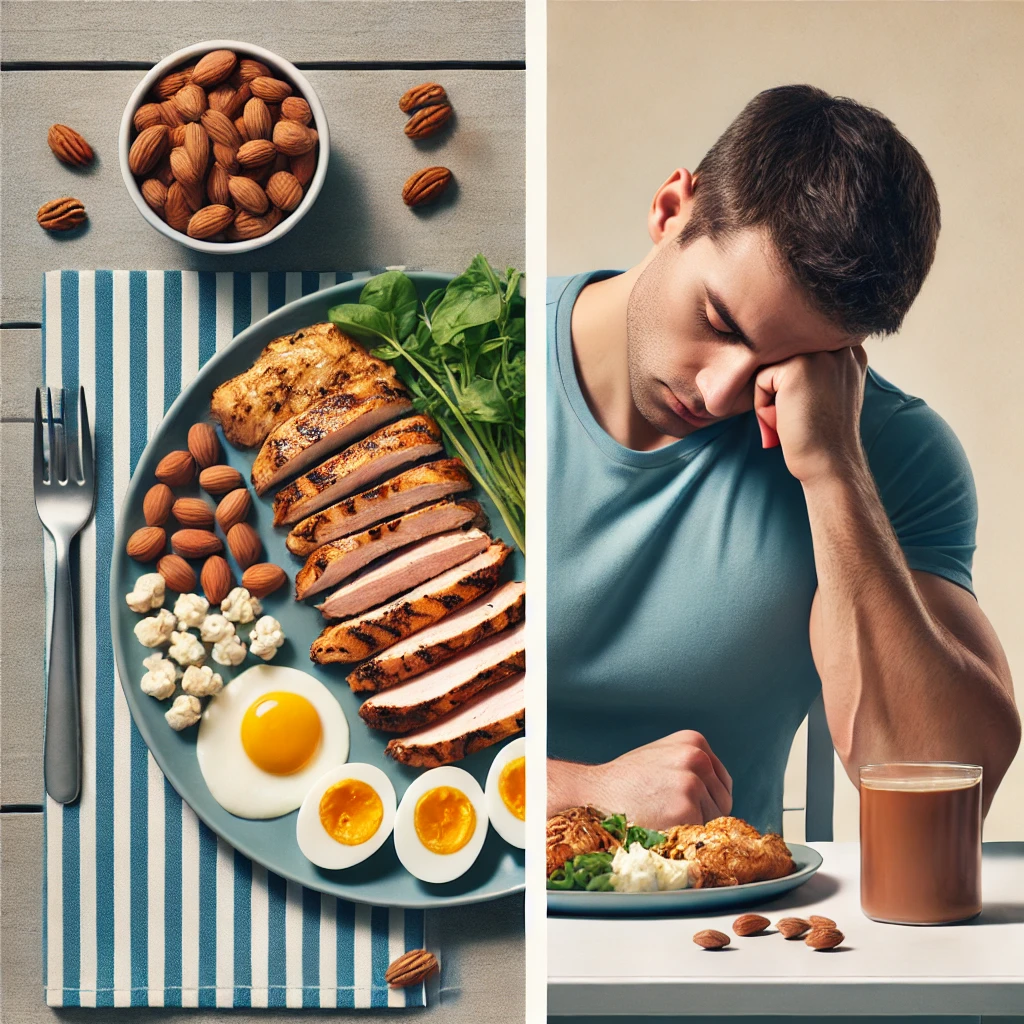
Proteins play an essential role in maintaining and building the body, but many people report feeling sleepy after consuming protein-rich meals. This phenomenon often raises the question: "Why does protein make me feel tired?" In fact, the relationship between protein intake and fatigue has several physiological explanations related to metabolism, amino acids, and neurotransmitters. Let's dive into the reasons why protein can leave you feeling drowsy and explore the key factors at play.
Protein and Amino Acid Metabolism
When protein is digested, it is broken down into amino acids, the building blocks of life. These amino acids are then absorbed into the bloodstream and transported to various tissues in the body, where they are used for protein synthesis or energy production. One key amino acid that influences sleep and fatigue is tryptophan, which serves as a precursor to serotonin and melatonin—neurotransmitters involved in regulating sleep-wake cycles
After consuming a protein-heavy meal, the increased level of tryptophan in the bloodstream can lead to an uptick in serotonin and melatonin production. This change is thought to contribute to the sleepy feeling many people experience post-meal. Additionally, amino acids from protein also affect insulin levels, which further promotes tryptophan absorption into the brain, leading to enhanced production of sleep-inducing hormones.
The Tryptophan Connection
The link between protein consumption and sleepiness can largely be attributed to tryptophan, an amino acid found in many high-protein foods. When we eat protein, tryptophan competes with other amino acids for entry into the brain. However, carbohydrates can increase insulin levels, which causes many amino acids to be taken up into muscle cells. Tryptophan remains in the blood, increasing its ratio relative to other amino acids, and is more likely to cross the blood-brain barrier.
Once inside the brain, tryptophan is converted into serotonin, a neurotransmitter responsible for mood regulation and promoting a sense of relaxation. This serotonin is then further converted into melatonin, the hormone that signals it’s time to sleep. Therefore, protein consumption—especially when combined with carbs—can lead to increased melatonin levels, resulting in the feeling of drowsiness.
The Impact of Hormones
Hormonal responses to protein consumption play a role in feelings of tiredness as well. Consuming protein triggers the release of insulin, which facilitates the uptake of amino acids by muscle tissues. This process leaves tryptophan relatively abundant in the bloodstream, allowing more of it to be transported to the brain. Additionally, the body's natural circadian rhythm, which regulates sleep, can make certain individuals more sensitive to the effects of tryptophan after meals.
Furthermore, cortisol, a hormone linked to stress, decreases after consuming protein-rich foods. This reduction in cortisol may also promote a sense of calm and relaxation, making you feel more inclined to nap.
Does High Protein Make You Tired?
Some individuals find that consuming a high-protein diet makes them more fatigued, particularly if the diet is low in carbohydrates. This is because carbohydrates help balance blood sugar levels and provide a quick source of energy. Without enough carbs, the body is forced to rely on protein and fat for energy, which can be a slower, more fatiguing process.
In cases where a high-protein diet is combined with low carbohydrate intake, the body enters a state of ketosis. While ketosis can provide sustained energy, the initial stages may result in fatigue as the body adjusts to burning fat rather than glucose. This shift in metabolic pathways can contribute to feelings of lethargy, particularly after meals.
Why Does Protein Make Me Sleepy?
So, why exactly does protein make you sleepy? The primary reasons include the conversion of tryptophan to serotonin and melatonin, the role of insulin in increasing tryptophan availability, and the natural post-meal hormonal shifts that induce relaxation. If you consume a meal high in both protein and carbohydrates, you may experience a stronger sedative effect due to the synergistic impact of insulin and tryptophan
In particular, foods like turkey, chicken, eggs, and cheese are rich in tryptophan, which could explain why post-meal fatigue seems especially pronounced after eating these types of protein. Additionally, the body’s metabolic focus on digesting large amounts of protein can divert energy away from other functions, including mental alertness, further promoting drowsiness.
Practical Solutions
If feeling sleepy after eating protein-rich meals interferes with your daily routine, there are some strategies you can employ to mitigate this effect. First, balancing protein intake with carbohydrates can prevent an overwhelming rise in tryptophan levels in the brain, reducing the likelihood of feeling sleepy. Additionally, consuming smaller, more frequent meals may help your body process protein more efficiently without inducing fatigue.
Staying hydrated and incorporating light exercise after meals can also help counteract the sleepy effects of protein. If you are on a high-protein diet, ensure you’re getting enough calories from fats and carbohydrates to maintain balanced energy levels throughout the day.
Closing Remarks
In summary, the question "Why does protein make me tired?" can be answered by examining the relationship between amino acids, neurotransmitters, and hormonal responses. The tryptophan in protein plays a significant role in promoting sleep-inducing hormones like serotonin and melatonin, while the metabolic demands of digesting protein can further contribute to feelings of fatigue. Understanding this process can help individuals adjust their dietary habits to prevent post-meal sleepiness and maintain optimal energy levels throughout the day.
